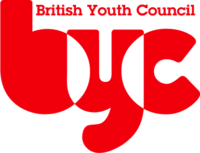British Youth Council calls for an end Rwanda deportation policy
The British Youth Council remains concerned about the government’s continued attempts to deport people to Rwanda. The charity’s international representatives, UK Young Ambassadors, call on the government to end this brutal practice immediately. The intervention follows a series of statements from across the political spectrum and an open letter from more than 100 organisations. The
- Published in News, Press, UK Young Ambassadors
Looking back at the 2022 Commonwealth Youth Forum
Last week Elif and I attended and contributed to the 12th Commonwealth Youth Forum (CYF) in Kigali, Rwanda (admittedly, it was our first-time meeting in person!). The Youth Forum was one of the four significant forums (Women’s, Business and People) that preceded the Commonwealth Heads of Government Meeting (CHOGM). The Youth Forum consisted of 3
- Published in Blogs, UK Young Ambassadors
Reflections of the new Europe & the Americas Representative on the Commonwealth Youth Council
Where do I start! Over a year of hard work, intense campaigning and support from some truly incredible people has culminated in the first-ever young person from Europe being elected onto the Commonwealth Youth Council Executive Committee, a body of 10 executives who represent 1.4 billion young people. And I want to reflect on the
- Published in Blogs, UK Young Ambassadors
UK Young Ambassadors: Why the UK needs UN Youth Delegates
As many of you might be aware, in early 2022, the UK Young Ambassadors began exploring the possibility of a UN Youth Delegate Campaign. For those that don’t know what this is, the campaign idea focused on re-establishing a UK-UN Youth Delegate program, thus allowing young people across the UK to once again have their
- Published in Blogs, UK Young Ambassadors
Creating policy on the important issues facing young Europeans
Last month, from 13th May to 14th May, I joined my fellow European Youth Forum delegates virtually for my first ever Council of Members Meeting (COMEM). While I would have loved to join the rest of my colleagues in Brussels and attend in person, I was unable to do due to having tested positive for
- Published in Blogs, UK Young Ambassadors
Looking ahead to the 2022 Commonwealth Youth Forum
Next month marks the 2022 edition of the biennial Commonwealth Youth Forum, taking place in Kigali, Rwanda. The forum is the centrepiece of the Commonwealth’s youth engagement strategy and is the highest decision-making forum for young people in the Commonwealth. It brings young people together to build international youth networks, exchange ideas and contribute to
- Published in Blogs, UK Young Ambassadors
UK Young Ambassadors attend European discussions in Budapest
On April 21st, Sylvia, Tom and Maurizio traveled to Budapest for the Spring COMEM preparatory BICC meeting. COMEM is the European Youth Forum’s Council of Members meeting which happens bi-annually and focuses on things such as member admission and policy motions. BICC is the name of the subgroup of youth councils that the British Youth
- Published in Blogs, UK Young Ambassadors
UK Youth Ambassadors: We support votes at 16
As international ambassadors, we have seen incredible progress in countries around the world in giving young people the right to vote. Even within the UK, in Wales and Scotland, young people aged 16 and above have been granted voting rights in local elections and referendums, enabling them to influence key decisions that affect their lives
- Published in Blogs, UK Young Ambassadors, Votes at 16
UK Young Ambassadors: Reflections from Brussels
From 5th-6th March 2022, I attended a special consultation session of the European Youth Forum (YFJ) in Brussels. The meeting was centered on the issue of statutory reforms, which given a change in Belgian law, required changing. As a result, the YFJ convened a special consultation with members to discuss the changes proposed by the
- Published in Blogs, UK Young Ambassadors
UK Young Ambassadors respond to war in Ukraine
As international representatives of the British Youth Council we are extremely concerned by the events currently unfolding in Eastern Ukraine. After weeks of escalation and failed attempts to return to diplomacy, Russian President Vladimir Putin – as of the early hours February 24, 2022 – authorised a “military operation” into the Eastern Donbass region of
- Published in Blogs, Press, UK Young Ambassadors
- 1
- 2











